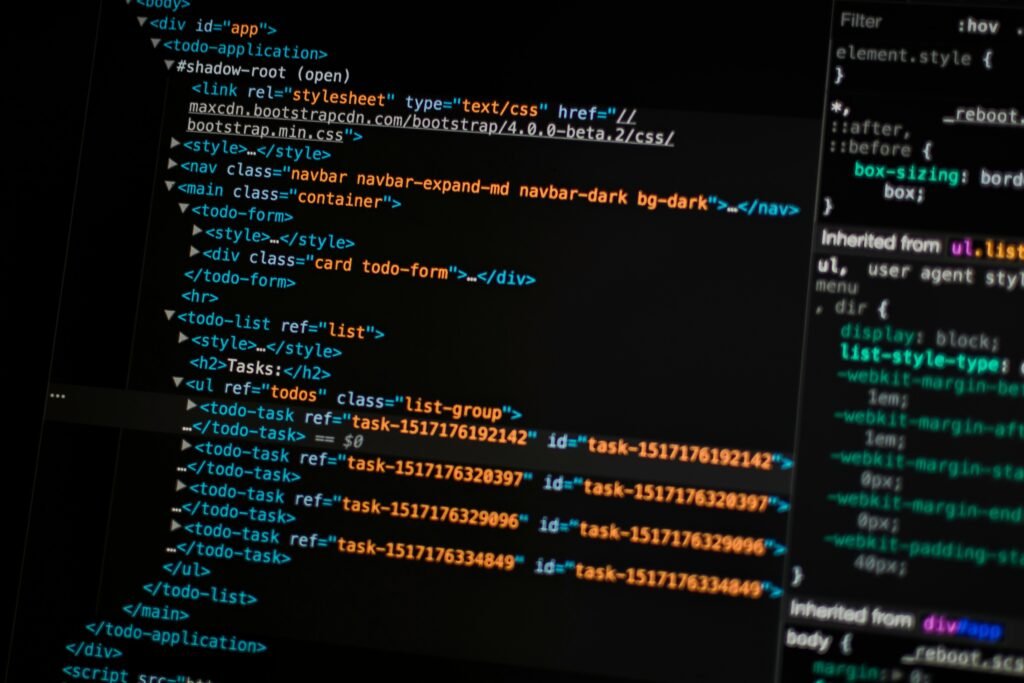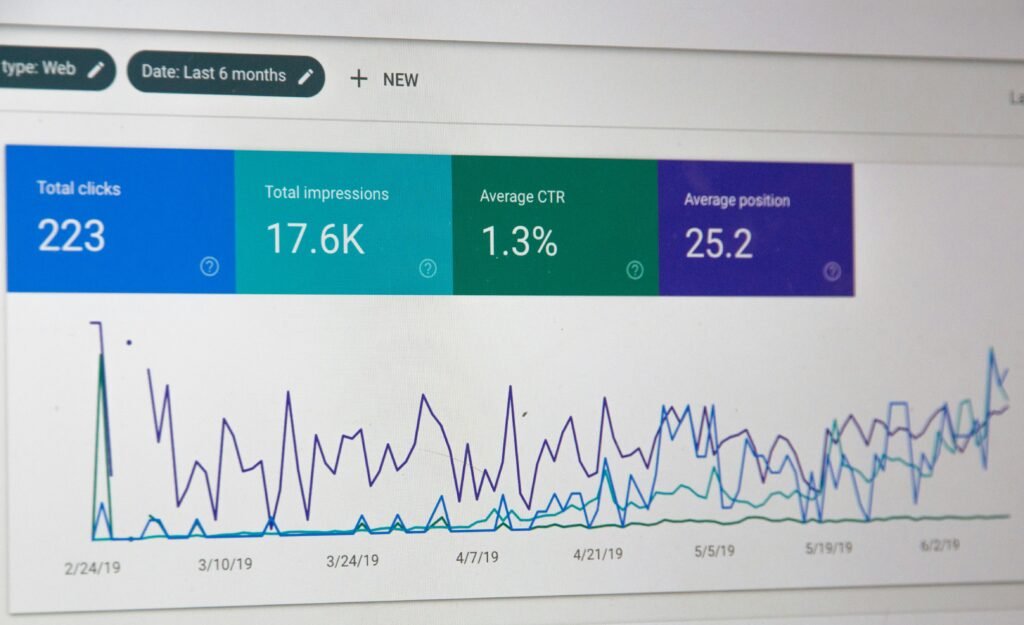
Introduction to Coding
Coding, often referred to as programming, is the process of creating instructions that a computer can understand to perform specific tasks. In today’s digital world, coding is an essential skill that transcends various industries and plays a crucial role in technology advancement. From software development to data analysis, the ability to write code is foundational in promoting innovation and efficiency in both personal and professional realms.
At its core, coding involves using programming languages to communicate with computers, enabling users to instruct machines on how to interpret and execute tasks. There are numerous programming languages available, each with its own syntax and applications. Among these, JavaScript has emerged as a prominent language, particularly in the realm of web development. It primarily enables developers to create interactive and dynamic content for websites, enhancing user experience significantly.
The relevance of coding skills extends beyond just web development. Understanding coding principles allows individuals to explore various fields, including app development, game design, and even automation of repetitive tasks. As companies increasingly rely on technology, individuals with coding expertise are in high demand, making these skills a valuable asset for career advancement. Learning JavaScript, in particular, serves as an excellent starting point for beginners, as it is widely used and has extensive community support, facilitating the learning process.
As we navigate through this digital age, acquiring coding skills is not just for aspiring software engineers but for anyone looking to harness the power of technology in their respective fields. The journey of learning to code can open up numerous opportunities, making it an essential pursuit for beginners eager to dive into the coding world.
Why Choose JavaScript?
JavaScript has emerged as a preeminent programming language, particularly in the realm of web development. One of its foremost advantages is its ubiquitous presence; nearly every website employs JavaScript to create interactive and dynamic user experiences. This wide adoption makes JavaScript a practical choice for beginners, as resources and community support are abundant. New learners will find a wealth of tutorials, forums, and documentation available to assist them in their journey.
The language’s vast ecosystem is another compelling reason to consider learning JavaScript. It is complemented by an array of powerful frameworks and libraries such as React, Angular, and Vue.js, which simplify the process of building complex applications. These tools allow developers to create feature-rich interfaces that enhance user engagement. Additionally, JavaScript can be utilized in back-end development through environments like Node.js, enabling programmers to use a single language across the entire stack. This versatility can lead to more streamlined development processes and allows for greater efficiency when managing projects.
Moreover, JavaScript is continually evolving, constantly introducing new features that enhance its usability and performance. The language is regarded for its flexibility, accommodating both object-oriented and functional programming styles. This adaptability enables developers to select the best approach suited to their specific project requirements. In the context of modern web development, gaining proficiency in JavaScript facilitates the creation of responsive designs and citizen-centric applications, which are essential for enhancing user satisfaction in today’s digital landscape.
In conclusion, selecting JavaScript as your first programming language presents numerous advantages, from its universal applicability in web technologies to its comprehensive ecosystem and ongoing advancements. As a beginner, mastering JavaScript not only opens doors to diverse opportunities but also equips you with essential skills deemed crucial in the technology-driven world.
Setting Up Your Development Environment
Creating an effective development environment is crucial for anyone embarking on their journey to learn JavaScript. The right setup can significantly enhance your coding experience and streamline your learning process. To begin, you’ll need a reliable code editor, and Visual Studio Code (VS Code) stands out as one of the most popular choices among developers. This lightweight yet powerful editor supports JavaScript development through various extensions and built-in features that promote efficient coding practices. You can download it from its official website and follow the straightforward installation instructions for your operating system.
Once VS Code is installed, it is advisable to customize it by adding extensions tailored for JavaScript development. Extensions for linting, formatting, and Git integration can improve your workflow, making it easier to manage your projects. For instance, Prettier and ESLint are widely used to enforce code quality and consistency.
In addition to choosing the right code editor, setting up a suitable web browser is essential for testing your JavaScript code. Modern browsers such as Google Chrome and Firefox come equipped with developer tools that allow you to inspect, debug, and experiment with your code in real-time. You can easily access the console to execute JavaScript snippets or monitor error messages that may arise during development.
Furthermore, if you are interested in back-end development using JavaScript, implementing Node.js into your environment is highly beneficial. Node.js allows you to run JavaScript server-side and opens up opportunities for developing full-stack applications. To install Node.js, visit its official website, where you can find the installation guides tailored to your operating system.
Finally, mastering the development tools available in your chosen browser is an integral part of the learning process. Familiarizing yourself with features such as breakpoints and debugging sessions can greatly enhance your programming skills. By setting up a solid development environment, you establish a strong foundation for your pursuit of JavaScript mastery.
Understanding the Basics of JavaScript
JavaScript, as a versatile programming language, is essential for building interactive web applications. To embark on your coding journey, it’s crucial to grasp its fundamental concepts, beginning with syntax. JavaScript’s syntax, comprising specific rules for writing statements, defines how code is structured and organized. By adhering to these guidelines, beginners can successfully write functional and error-free programs.
Next, we turn our attention to variables, which serve as containers for storing data values. In JavaScript, variables are created using the keywords var, let, or const. The choice of keyword affects the scope and mutability of the variable, which is an essential aspect of writing efficient code. This understanding leads to the exploration of data types, including strings, numbers, booleans, and objects, among others, which play a pivotal role in manipulating and processing data in JavaScript.
Another critical component of JavaScript programming is operators, which allow developers to perform operations on variables and values. There are several types of operators in JavaScript, including arithmetic, comparison, and logical operators. Familiarity with these operators enables beginners to write expressions that can evaluate conditions and perform calculations effectively.
Furthermore, basic structures such as loops and conditional statements are vital for controlling the flow of a JavaScript program. Conditional statements, like if and switch, enable the execution of different code blocks based on specific conditions. Loops, such as for and while, facilitate the repeated execution of code, allowing developers to automate tasks and manage repetitive operations.
In essence, understanding these foundational concepts will empower beginners to start writing simple JavaScript programs and scripts, establishing a robust groundwork for more advanced programming techniques. The ability to manipulate variables, utilize operators, and control program flow is essential for any aspiring JavaScript developer.
Getting Started with JavaScript Projects
Embarking on your journey to learn coding with JavaScript can be both exciting and daunting. One of the most effective ways to solidify your understanding of the language is through practical application. Starting your first small projects using JavaScript not only helps you grasp the fundamental concepts but also allows you to see immediate results. A great initial project could be creating a simple web page with interactivity.
To begin, consider selecting a project that aligns with your interests and skills. A straightforward objective, such as building a personal portfolio or an interactive to-do list, can serve as a fantastic starting point. Focus on the essential features you want to implement, and break them down into manageable components. This modular approach enables you to tackle one section at a time, making the learning process less overwhelming.
As you work through your project, you will engage in an iterative process of coding, testing, and refining your work. After writing your code, take the time to run tests to ensure that it functions as expected. Debugging is a natural part of coding, allowing you to identify and resolve issues that arise. Embrace this challenge, as it is essential for your growth as a developer. Use browser tools like the console to troubleshoot and understand how your code behaves in real-time.
Moreover, don’t hesitate to seek feedback from the coding community or peers. Sharing your work can provide valuable insights and suggestions for improvement. Last but not least, remember that learning to code is a continuous journey; every small project you complete enhances your skill set and builds your confidence in using JavaScript. By engaging in practical projects, you will lay a solid foundation for a deeper understanding of coding, paving the way for more complex endeavors in the future.
Exploring JavaScript Libraries and Frameworks
JavaScript has evolved significantly and has given rise to numerous libraries and frameworks that streamline the development process. Libraries such as jQuery, React, and Vue.js have become staples in the world of web development, each offering unique strengths and capabilities that enhance productivity.
jQuery, one of the oldest and most widely used JavaScript libraries, simplifies tasks such as DOM manipulation, event handling, and AJAX requests. Its easy-to-learn syntax allows beginners to quickly implement interactive features on their websites without needing to delve deeply into JavaScript. However, as web applications have become more complex, developers often consider more modern solutions that provide better structure and scalability.
React, developed by Facebook, is a powerful framework for building user interfaces. It utilizes a component-based architecture, enabling developers to create reusable UI components that can manage their own state. This modular approach promotes maintainability and scalability in larger projects. React’s virtual DOM also enhances performance, making updates more efficient. Beginners may find the learning curve steeper than with jQuery, yet it offers a robust solution for creating dynamic applications.
Vue.js has emerged as another popular framework, praised for its gentle learning curve combined with impressive capabilities. It adopts a declarative style for building user interfaces, making it easy to integrate into projects incrementally. Vue.js is particularly beneficial for small to medium-sized applications and is known for its flexibility, allowing developers to choose how deep they want to go with the framework.
In summary, choosing between jQuery, React, or Vue.js depends largely on your project requirements and familiarity with JavaScript. Each library and framework has its own strengths, and understanding these can significantly influence your coding journey in the world of JavaScript.
Debugging JavaScript Code
Debugging is a crucial aspect of the coding process, especially when working with JavaScript. As a dynamic programming language, JavaScript can often lead to unexpected behaviors, making the ability to find and resolve issues paramount for developers. The debugging process involves identifying errors or bugs in the code, understanding their causes, and implementing solutions to enhance functionality. There are various methods and tools available that can assist in this critical task.
One of the most common techniques for debugging JavaScript is to use console logging. By inserting console.log() statements into the code, developers can output variable values and other relevant information to the console, providing insight into the program’s execution flow. This technique can help identify where things are going awry, allowing developers to quickly spot discrepancies and rectify them.
Another invaluable tool for debugging JavaScript is the browser’s built-in developer tools. Most modern browsers provide a comprehensive suite of debugging utilities, including the ability to set breakpoints, step through code execution line by line, and inspect variable states and their changes over time. Utilizing these tools enhances one’s ability to monitor code execution, making it easier to diagnose where errors occur.
In addition to these methods, adopting best practices in writing code is essential to minimize debugging challenges. This includes structuring code in a logical manner, using clear and descriptive variable names, and implementing error handling through try-catch blocks to manage potential runtime errors. By focusing on writing clean and maintainable code from the outset, developers can significantly reduce the frequency and severity of bugs in their JavaScript applications.
Ultimately, mastering debugging techniques is an essential skill for any JavaScript developer. The combination of employing effective tools and adhering to coding best practices not only simplifies the troubleshooting process but also contributes to overall code quality and project success.
Resources for Learning JavaScript
In the journey to learn JavaScript, a variety of resources are at the disposal of beginners. These resources include online courses, interactive tutorials, coding bootcamps, and community forums, each serving a unique purpose in the learning process. For those who prefer structured learning environments, online platforms such as Codecademy, Udemy, and Coursera offer comprehensive courses tailored for beginners. These courses often encompass foundational concepts, best practices, and even project-based learning to solidify understanding.
Besides formal courses, interactive coding platforms such as freeCodeCamp and Khan Academy are invaluable for engaging with JavaScript through hands-on exercises. They present real-world challenges that promote active learning, which is crucial for mastering coding skills. Furthermore, platforms like LeetCode and HackerRank can serve as excellent resources for practicing JavaScript coding challenges, enhancing problem-solving abilities.
For learners who thrive in collaborative environments, joining a coding bootcamp might be an appealing option. Bootcamps provide immersive, accelerated programs focused on practical skills, making them an efficient way to learn JavaScript in a short timeframe. These programs often also emphasize teamwork and project development, which can be beneficial for those looking to enter the workforce quickly.
Lastly, community forums such as Stack Overflow, Reddit, and various Discord servers dedicated to JavaScript offer an excellent avenue for ongoing support and mentorship. Engaging with fellow learners and experienced developers fosters a sense of community, allowing newcomers to seek advice, share resources, and discuss common challenges.
The selection of resources available for learning JavaScript reflects the importance of continuous education. Utilizing a combination of these resources can significantly enhance one’s understanding of JavaScript, paving the way for more advanced programming pursuits.
Tips for Becoming a Successful JavaScript Developer
Embarking on the journey to become a proficient JavaScript developer involves more than just mastering the syntax of the language; it also requires strategic actions aimed at continuous improvement. Joining coding communities can significantly enhance your learning experience. By engaging with fellow developers, you can share knowledge, ask questions, and receive feedback on your work. Participating in forums such as Stack Overflow or online communities like Reddit will expose you to a variety of problems and solutions, fostering a collaborative learning environment.
Another effective strategy is contributing to open-source projects. This hands-on experience allows you to apply your JavaScript skills in real-world scenarios while also gaining exposure to best coding practices. Websites like GitHub host numerous open-source projects where beginners are encouraged to contribute. Not only does this enhance your coding abilities, but it also expands your professional network—an essential component in the tech industry.
In addition to community engagement and open-source contributions, participating in coding challenges can accelerate your JavaScript learning. Platforms such as LeetCode and HackerRank offer an array of challenges that vary in difficulty, encouraging you to think critically and develop problem-solving skills. The competitive nature of these challenges can motivate you to improve at a faster pace while also introducing you to new concepts and techniques.
Finally, building a portfolio is crucial for showcasing your skills as a JavaScript developer. A well-organized portfolio that includes personal projects, contributions to open-source, and documentation of coding challenges can be a powerful tool for demonstrating your competencies to potential employers. Make sure to include projects that highlight your ability to solve complex problems, as real-world applications of JavaScript often involve diverse frameworks and libraries.
Employing these practical tips will not only enhance your JavaScript capabilities but also lay a solid foundation for a successful career as a developer in this dynamic field.




